Reader's Choice
Popular articles
Throughout the life of the kidney, being a powerful filter, they constantly deal with infections, microbes, elements of toxic origin that enter the body. For 24 hours, they let through a lot of blood, cleaning it. After filtration by the kidneys, it is freed from slags and becomes again suitable for saturating each cell of the body. If suddenly one kidney stops performing its functions, its load completely falls on the second. But sometimes paired kidney failure happens. In this case, doctors imply the occurrence of renal failure, and patients are concerned about what to do next and what is the chance to survive.
The kidneys perform very important functions: internal (increcretory), which consists in blood formation, maintaining blood pressure at the proper level, and external (excretory), the basis of which is urine production.
Renal failure is characterized by dysregulation of the regulation of homeostasis of the physicochemical plan, in which urine ceases to form and stand out. The process does not develop immediately and suddenly, but the consequences are irreversible. You should listen to your body, identify the first symptoms of kidney failure, and immediately contact your doctor.
Signs of kidney failure are as follows:
Back to table of contents
The chronic form, when the kidneys have failed, is characterized by:

To prevent the disease, its causes are always easier, so do not even ignore the slight indisposition.
Back to table of contents
The main task of modern nephrology is the preservation of human life.
Most cases of kidney failure are preceded by illnesses that the patient has acquired earlier. This is diabetes, and heart attack, and diseases of the heart, blood vessels, etc. It is not easy to answer the question of how much is left to live. Often a person dies not because of kidney failure, although against this background, but from exacerbations of other diseases.
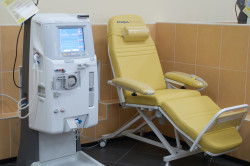 Experts say with confidence that a person can lead quite a quality life even after kidney failure. Symptomatic treatment is carried out to save a person’s life. It is based on the process of artificial blood purification. For more than a quarter of a century, artificial kidney (hemodialysis) devices have been operating in medical centers in our country. With their help, those who have lost their kidneys can live for about 5 years, as it was before the launch of the equipment, and several times longer. But if you do not resort to using artificial blood purification, a person dies in a few days. Accurate information on life expectancy statistics does not.
Experts say with confidence that a person can lead quite a quality life even after kidney failure. Symptomatic treatment is carried out to save a person’s life. It is based on the process of artificial blood purification. For more than a quarter of a century, artificial kidney (hemodialysis) devices have been operating in medical centers in our country. With their help, those who have lost their kidneys can live for about 5 years, as it was before the launch of the equipment, and several times longer. But if you do not resort to using artificial blood purification, a person dies in a few days. Accurate information on life expectancy statistics does not.
Approximate data are such that patients with renal replacement therapy live for more than 5 years, hemodialysis can prolong life by 23 years. The conservative method of recovery in case of kidney failure for the given period is impossible, but here there is a way out - a transplant that allows you to live well for more than 20 years.
About 40 people die a year without proper treatment.
It is expensive and time consuming. It is difficult to find a donor organ, sometimes it has to wait for years. Therefore, given the complexity of restoring health and prolonging life after kidney failure, it is necessary to take preventive measures and notice alarming symptoms in time.
The kidneys are paired organs that are important in maintaining the health of the body by maintaining the constancy of the internal biochemical environment of the human body. Renal dysfunction or their complete failure leads to acute or chronic renal failure - this is a difficult pathological process, leading to disability or death.
Renal failure is often the result of inadequate diagnosis and delayed treatment of renal and systemic pathologies, so any renal dysfunction requires urgent treatment to a doctor and subsequent intensive care.
These organs can cope with the load for a long time, due to compensation from healthy cells, so there may be no signs of pathology for a long time. However, with prolonged increased load and the continued influence of negative factors, decompensation occurs when healthy kidney cells begin to break down.
Causes of kidney failure are divided into three main groups:
Exposure to these causes leads to renal failure, acute or chronic. In the first case, the symptoms of kidney failure appear suddenly and quickly grow, in the second - they develop gradually.
Acute renal failure (ARF) is a reversible pathology that occurs when toxic factors influence or impaired renal blood flow. Dysfunction increases in a short period of time - from several hours to several days, with impaired water-salt, electrolytic, osmotic and acid-base balances. The body begins to accumulate metabolic products, causing the following signs of kidney failure:
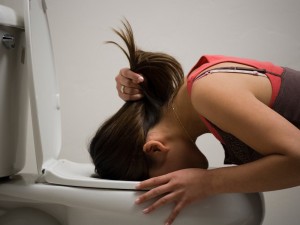
Failure to provide further assistance causes hematomas on the body due to sudden unreasonable bleeding, shortness of breath, confusion, high fatigue and drowsiness, convulsions begin, and coma eventually occurs.
Chronic renal failure (CRF) appears gradually, due to renal dysfunction due to the consistent reduction of healthy nephrons, when the body begins to accumulate metabolic products. For CRF cause pyelonephritis, amyloidosis, glomerulonephritis, renal tuberculosis, cystic disease, cholera, sepsis, severe course typhoid, impaired ureteral patency due to hydronephrosis, renal and prostate tumors, hypertension, toxic effects of salts of metals, mercury, arsenic and other substances; pain shock, as well as systemic metabolic disorders - systemic lupus erythematosus and other collagenoses, diabetes mellitus, gout.

The consequences of kidney failure threaten necrosis in the cortex due to prolonged ischemia, blood stagnation leads to pulmonary edema, the accumulation of toxins causes disruption of the functions of the central nervous system. Immunity decreases, leukocyte function decreases, which increases the risk of developing infectious inflammation. CKD contributes to the appearance of heart attack and stroke. Impaired calcium absorption leads to bone degeneration and pathological fractures. There is a strong weight loss, bleeding in the internal organs, reduced synthesis of sex hormones.
Treatment of kidney failure is active and conservative.
Conservative therapy is carried out in order to slow the development of the process and eliminate metabolic disorders. It involves the appointment of anabolic drugs that reduce the content of toxic nitrogenous compounds in the blood. Also, patients should follow a low protein diet that is low in salt, potassium, phosphates, and increased in calories by adding carbohydrates and fats.
Active therapy includes:
Renal failure is now considered a reversible and treatable process, but given the consequences, it is necessary to see a doctor as soon as possible at the first signs of a renal failure.
The kidneys are one of those organs that play a very important role in the human body and have as their main task the regulation of the chemical homeostasis of the whole organism. If the kidneys do not work very well and their functioning can hardly be called satisfactory, the development of renal insufficiency is quite probable.
If we speak more familiar words to ordinary people, then we are talking about renal failure: the symptoms of renal failure. This disease is very dangerous due to the fact that it can arise unexpectedly or manifest itself only after a while. In the first case, we are talking about acute renal failure, and in the second - about chronic.
The main difference between acute and chronic form of renal failure is the period that lasts until the onset of symptoms.
With an arrester this process occurs no later than within a few days. In this case we are talking about a reversible process with ischemic or toxic genesis. 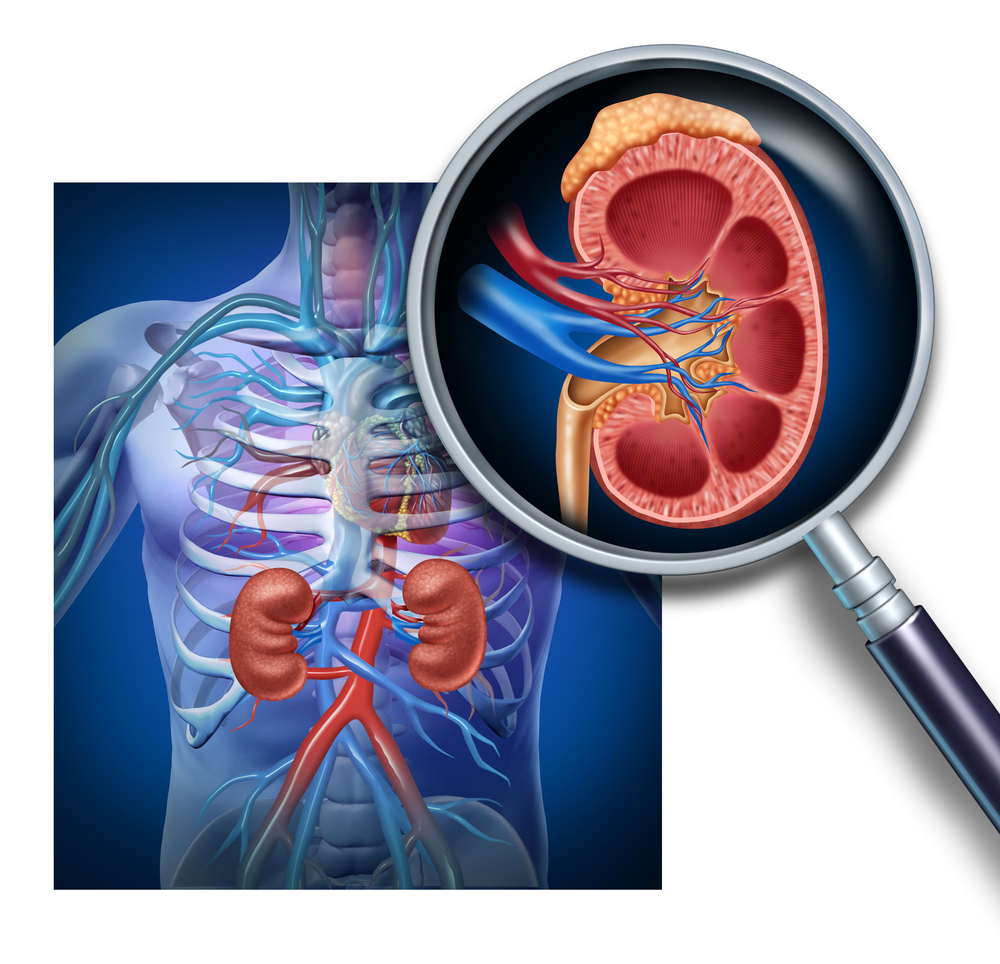 Such a state is the result of the flow of water, electrolyte, osmotic or acid-base balance. Renal failure: the symptoms of an acute type of renal failure can be the cause of severely disturbed renal blood flow, which leads to a delay in the products of nitrogen metabolism in the human body.
Such a state is the result of the flow of water, electrolyte, osmotic or acid-base balance. Renal failure: the symptoms of an acute type of renal failure can be the cause of severely disturbed renal blood flow, which leads to a delay in the products of nitrogen metabolism in the human body.
Renal damage can also lead to kidney failure, due to a sharp drop in the number of functioning nephrons. In this case we are talking about chronic renal failure. An unpleasant consequence of this condition. , they are also signs of kidney failure in humans- self-poisoning of the body due to the accumulation of products of its own vital activity. The gradual onset of symptoms of a chronic disease only complicates the problem of diagnosis and treatment, because for some time the entire burden falls on healthy tissues of the organ, which over time also collapse. The final stage of renal failure is complete renal failure.
Renal failure causes directly relate to certain forms, among which are the following:

Contribute to this pathology can also burn injury or an excess of potassium in the blood. With prolonged digestive disorders (such as vomiting and diarrhea), dehydration can occur, which can lead to kidney failure. We must not forget that such a deviation may develop in the fetus inside the womb or immediately after the birth of the newborn.
Renal failure is called a pathological condition, the result of which is a violation of excretion from the body and the formation of urine. This disease can be recognized by a number of signs. First, we are talking about the complete or partial cessation of urine. It is also possible a sharp decrease in diuresis. Secondly, swelling appears on the face and ankles. Because of this, body weight may increase dramatically. 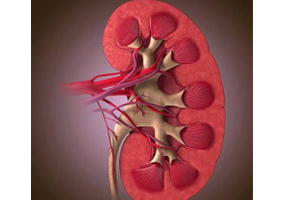
All these symptomskidney failure in humansclosely associated with nausea, vomiting, loss of appetite. Depending on the human body, there may be weakness or malaise, pain in the abdomen, itching. A characteristic sign that says kidney failure: symptoms of kidney failure is the presence of blood notes in the urine. If an appropriate failure of the kidney treatment is not arranged in time, the patient will experience such unpleasant symptoms as drowsiness, shortness of breath, confusion.
All this is due to fluid accumulation. The appearance of hematomas or even open bleeding is likely on the body. Additional symptoms are syncope, coma, spastic muscle contraction.
Renal failure in chronic form is accompanied by polyuria, frequent nocturnal urination, significant deterioration of health, edema, shortness of breath, nausea, vomiting, loss of appetite. Moreover, the patient often notice pain in the bones and chest area, his skin becomes pale. Women often have amenorrhea, “uremic frost”.
As a result, kidney failure effects most often result in necrosis of the cortical substance of the kidneys. Such a state is nothing else, as a consequence of a sufficiently long disruption of the renal blood circulation process. Blood stasis often leads to the development of edema. Pathology is very closely related to the likelihood of infection in the kidneys.
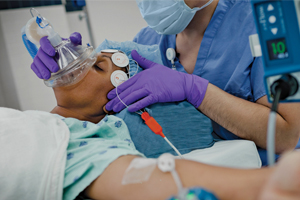
The chronic form of the disease is associated with more serious consequences due to the accumulation of uremic toxins in the body. First of all, it affects the state of the nervous system and leads to the occurrence of convulsive states, impairment of mental function.
Another characteristic feature of kidney failure is the development of anemia. This consequence arises because of a decrease in the level of erythropoietin formation. Hematological disorders lead to impaired phagocytic and immune function of leukocytes. This fact affects the increased likelihood of co-infections.
The consequences of kidney failure are complications arising from the cardiovascular system. This is hypertension, but the risk of provoking strokes or myocardial infarction is much worse.
Renal failure affects the strength of human bones. Osteodystrophy may result. If we talk about the digestive tract, it is worth noting the consequences, such as weight loss with the likelihood of anorexia. Moreover, there may be bleeding in the digestive tract. Related problems - a violation of metabolism and reducing the amount of hormones produced. The latter almost always causes a sharp decline in fertility.
People with this diagnosis often wonder if they can make kidneys after refusal. It all depends on the stage at which it was detected and on the measures taken by the doctor and the patient. The main thing is to stop demanding visits to specialists, and as soon as possible and quickly contact the nearest medical institution for help.
What is the role of the kidneys in the body, how vital they are for us, what to do if they suddenly get sick? Each person should ask these questions to himself, and, first of all, every parent who has a small child, and the answers to them should be known to everyone. Let us try to understand all this for ourselves in order to avoid tragedies in childhood, youth, and at any age, when the kidneys suddenly refused.
The whole point of these questions is that the kidneys never suddenly fail. The process that led to such an unpleasant ending lasts for many years, but proceeds gradually, covertly. And so it turns out that the kidneys are a treacherous organ, you have to be very careful with them.
The kidneys are a paired organ of excretion of end products of tissue metabolism:water, nitrogenous compounds and some salts are the waste products of the global chemical process that takes place in our tissues and is called metabolism.
In the kidneys there is an abundant network of arterial vessels, twisted in the form of glomeruli.- glomeruli, filtering the serum, removing from it all that is unnecessary with the formation of the so-called primary urine. But this primary urine is diluted, about 120–150 l is released per day.
And because in the kidneys there is also a tubule apparatus - a huge labyrinth of tubules, where the primary urine is filtered. The walls of the tubules are lined with epithelium capable of concentrating the primary urine to its normal specific gravity (1.012–1.018) and quantity (1.5–2 l per day).
In order for this to happen, the reabsorption of fluid against the density gradient takes place in the tubules, which is associated with a large amount of enzymatic work occurring in the epithelium of the walls of the tubule apparatus. And all enzymatic work is a synthetic process associated with energy absorption.
When does the failure of the whole complex system begin?Numerous case histories and protocols of anatomical autopsies suggest the following. Already the first sore throat in a child’s life or the first inflammatory process in the respiratory tract (ARI, flu, etc.) introduces a certain number of microbes into the glomerular apparatus of the kidneys, that is, into the arterial vascular network. Together with microbes, dead epithelial cells of the mucous membrane of the respiratory organs, which are formed in the process of inflammation, enter there.
A few such sessions of kidney vascular contamination are enough (repeated sore throats, flu, acute respiratory infections, scarlet fever), and glomeruli are inflamed. Inflammation is often acute in nature: the wall of the blood capillaries is damaged, blood enters the urine, and it becomes red.
At the same time, the child's temperature rises, pains in the lower back appear - this is acute glomerulonephritis.
The treatment of acute glomerulonephritis currently accepted in medicine - antibiotics, sulfonamides, corticosteroids - with the aim of stopping and suppressing the process of inflammation of the glomerular tissues.
This goal is achieved: the inflammatory process in the kidneys is suppressed, but not eliminated.The dead bodies of the kidney cells and microbes formed during the process of inflammation are not completely removed from the kidneys. Lingering in the walls of the renal vessels or entering with a stream of urine in the canaliculi or the renal pelvis, where the canaliculi open, they cause a new inflammatory process.
Now (immediately or after some time: several months, several years), the tubules become sick, and nephrosonephritis or pyelonephritis occurs. Very often, glomerulonephritis (inflammation of the renal glomeruli) turns into a chronic process.
The permeability of arterial capillary walls is impaired, and they begin to let large serum proteins, albumin, dissolved in it, pass from the blood serum. The patient loses protein - the building material of body tissues, this is a dangerous symptom that threatens with a serious violation of immunity and requires treatment.
Modern medicine offers antibiotics, chemotherapy and hormones, that is, the treatment tactics remains the same as in acute inflammatory process. The result is the proliferation of connective tissue in the foci of inflammation, the formation of the so-called secondary shriveled, that is, sclerosed kidney.
It is necessary to know that the growth of connective tissue takes place in chronic inflammatory process in any organ: in the liver is cirrhosis, in the lungs - sclerosis and emphysema, in the myocardium - cardiosclerosis, in the brain vessels - sclerosis, cerebral stroke, in the brain tissue itself - epilepsy.
So, renal vascular sclerosis (as a result of their inflammation) in the initial stage causes arterial hypertension. Hence the "youthful", malignant, refractory hypertension.
In fact, hypertension at any age, it is called symptomatic or essential (that is, from an unknown cause), has a single cause - inflammation of the vascular apparatus of the kidneys, anemia of the kidney tissue, the release of such damaged kidneys into the bloodstream of the hormone renin. And it causes a spasm of the capillaries of the whole organism, including the vessels of the brain, the heart and the kidneys themselves.
A spasm of blood vessels leads to an increase in blood pressure, and in case of damage to the vascular walls (inflammation - defects of the inner lining of blood vessels) in various organs (heart, brain, lungs, liver), cholesterol, calcium salts, nitrous products get into damaged places from the blood serum. (i.e. protein) metabolism is uric acid crystals.
All this "byak", laying on the walls of large and small arteries, causes sclerosis and ulceration of these walls, and then thrombosis (occlusion) of the lumen of the vessels. As a result, myocardial infarction, cerebral stroke, etc.
Such processes can occur in any organ (including the kidneys) due to the exsanguination of the tissue site in which the thrombosed vessel is located. The truth becomes clear: when a disease of one organ in the body (that is, a system of organs) occurs, others close or far away also become ill, it does not matter, since all the organs wash the same blood, lymph and tissue fluid.
However, “a fairy tale is soon having an effect, and it’s not soon done,” especially in the human body, equipped with a huge number of defense mechanisms at every level of its existence - biochemical, physiological, physical, nervous, hormonal, psychological.
But water wears away the stone, and from the first sore throat or bronchitis in 1–1.5 years to hypertension, heart attack, stroke passes 20, 40, 60 years, so the cause of these diseases is lost and forgotten, and they begin to heal again systematically vasodilators and anticoagulants.
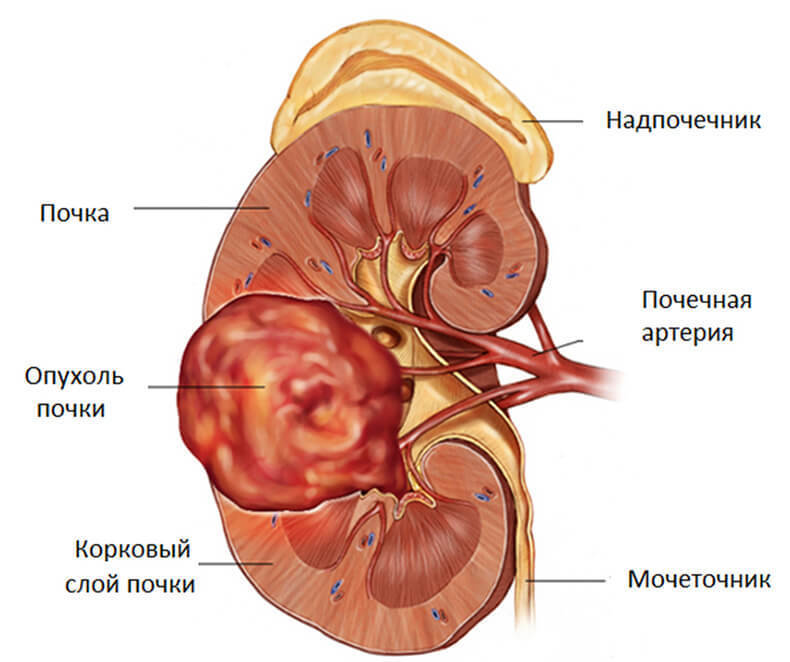
Thus, people for decades continue to neglect the laws of nature, rape their bodies with drugs, destroying the internal organs created by divine wisdom.
And what happens to the kidneys themselves, if the pathological process takes place in them more intensively?Inflamed glomeruli fail, the same happens with inflamed tubules. They cease to function, there comes the so-called renal failure.
The glomeruli are not able to filter out extremely toxic low-molecular nitrogen compounds (urea, uric acid, creatine, creatinine and others) from the serum, their concentration in the blood serum (the so-called residual nitrogen) increases, azotemia or uremia occurs - the whole body is poisoned with its own protein waste exchange.
Now, to save the patient's life, medicine resorts to filtering the blood through an artificial kidney or kidney transplant. The success of these methods will be discussed in the next article.
From all of the above, the conclusion suggests itself: it is better to prevent kidney disease than to treat it, and if it did, treat it at the very beginning and perhaps at an early age.
How to find out that the kidneys are sick, if there are no obvious, catastrophic symptoms - red urine, high fever, back pain, not even protein in the urine?
You need to know that with any sore throat, bronchitis, pneumonia, flu, acute respiratory infections, sinus, and especially bronchial asthma, the kidneys fall ill.But, being a very patient and “silent” organ, the kidneys do not let us know about their distressful condition, but continue to do their job of cleaning the blood serum to prevent us from poisoning ourselves with our own nitrogen.
They refuse immediately and silently as well. This can occur in 15 years, and in 45, and in 60, but to save the kidneys and cure them completely most likely in childhood and adolescence, when the growth of the body is not yet complete, there is full possibility of creating new tissues - glomeruli and tubules - instead of damaged .
But in order for this to happen, drug therapy is in no way suitable, since it suppresses the immune system, the regenerative abilities of the tissues of the body, and leads to the processes already described.
Now this version has been created in official medicine: let children with diseased kidneys be treated with drugs and hormones (since without hormones it is impossible to stop the pathological process), and with age, “this will all go away” and the child will “outgrow” the disease.
But, unfortunately, this does not happen, but the following happens: during puberty, new endocrine glands, the ovaries and testicles, begin to function fully. They release a large number of sex hormones that have not been received before.
The metabolism of the body includes new, powerful components that improve tissue trophism and thereby compensate for the disease, but do not cure it, because the reason - the presence of purulent foci in the body - has not been removed.
These foci of dormant infections come to life after 25-30 years (or earlier), when tissue growth ends and some “tissue depression” occurs as a result of accumulation of stresses of the most diverse origin: food, environmental, psychological, etc.
Here comes the moment when the kidneys "suddenly refused", and then work begins for surgeons, that is, connecting an artificial kidney or kidney transplant, followed by the introduction of drugs that suppress the immune system so that the transplanted kidney does not reject.
Another option: a neurologist treats a patient with chronic pyelonephritis from ... radiculitis - it occurs more often and lasts quite a long time (years) until the same final comes - the kidneys have failed.
Therefore, people - sick and healthy - need to know that any pain throughout the spine, its deformation, neuralgia of the intervertebral nerves is the result of chronic diseases of the internal organs: bronchi, lungs, stomach, pancreas, kidneys.
Clean these organs, renew their tissues with the methods of natural therapy, and the spine will straighten itself, pain will pass, the dislocated discs will fall into place. Yourself? Yes, by themselves, because the long spasm of intervertebral muscles, causing all this pathology, will cease. The cause of the spasm becomes pathological nerve impulses coming from diseased organs to the corresponding segments of the spine.
How to avoid such a disappointing picture - the transformation of some diseases into others and their endless treatment?
Every person, and even more so a parent (from which we started), needs to know about the great vulnerability of the kidney tissue and all the consequences that flow from this.
Therefore, for any illness of a child or an adult, it is necessary to immediately begin cleaning the tissues (blood, lymph, intercellular fluid, cells) of the whole organism. It is with this general cleansing that the kidneys are also cleaned - very successfully and with quick results.
What is general purification and how is it done? This is, firstly, drinking large amounts of fluid to enhance the circulation of lymph and the excretion of cellular debris by the flow of lymph into the nipples of the mucous membrane of the large intestine, from where they are thrown out with the contents of the large intestine.
But this requires regular washing of the intestines for 1-3 weeks daily with saline, herbal infusions, urine.
You need to drink about three liters per day of the fluid that cleanses and nourishes the body cells, and not just water. This is a decoction of herbs with the addition of honey and citrus juices.
Herbs are selected according to the principle of purification of all body systems: respiratory, digestive, excretory. The state of the musculoskeletal, nervous and circulatory systems directly depends on the state of the first three.
These may include the following medicinal herbs: mint, oregano, lemon balm, yarrow, chamomile, plantain, bearberry, sage, nettle, motherwort and others.
Eating solid food should be eliminated for this period in order to stop the process of digestion and the secretion of digestive enzymes. This is necessary in order to activate the work of proteolytic tissue enzymes that cleave and remove pathological inclusions from the cells, as well as the sick, slagged cells. With such a global tissue cleansing, the therapeutic effect occurs already in 10–15 days, and the final recovery, depending on the age and duration of the disease, in 6–12 months.
During this time, it is necessary to conduct a 10–15-day cleansing course of treatment (herbal decoctions, juices, intestinal lavage) every 3 months.
In between, it is necessary to observe the regime of biologically complete, that is, raw vegetable nutrition with the inclusion of a large amount of raw fruits, vegetables, nuts, sprouted cereals, vegetable and butter, cream, raw egg yolks and, of course, a wide variety of freshly squeezed fruit and vegetable juices.
Practically all juices are acceptable and very useful: apples, carrots, beets, pumpkin, cabbage, celery, parsley, Jerusalem artichoke, melon, cherry, plum, grapes, but watermelon juice is especially healing, and not only in the treatment of kidneys, but also in the treatment of bronchitis and bronchial asthma, which is carried out exactly the same method.
It is especially necessary to say about one fatal error in the treatment of acute and chronic glomerulonephritis, when the patient loses protein in the urine (normally there is no protein in the urine).
In order to make up for these protein losses, patients begin to feed intensively with animal protein — meat, cottage cheese. This aggravates the disease, since the foreign animal protein, being the strongest antigen, causes the formation of antibodies to food proteins (40% of these proteins are absorbed in the small intestine in the form of molecules that retain their antigenic abilities).
The next stage of excess immunogenesis is the formation of antibodies to the body's own tissue proteins. Autoimmune processes that destroy the body, especially the kidneys, arise and develop with the effect of snow avalanche. They are treated, that is, suppressed, with hormones and non-hormonal immunosuppressants. This process is doomed to complete failure.
The lack of protein nutrition in chronic and acute renal disease is the first condition for recovery, since at the same time the walls of the renal vessels and tubules are not destroyed by aggressive antibodies, which are ready to destroy everything in their path, including the body’s own tissues. Natural carbohydrates of fruit and vegetable juices, on the contrary, provide building material for restoring damaged kidney tissue.published by
If the kidneys have failed: how much is left for the person to live
Throughout the life of the kidney, being a powerful filter, they constantly deal with infections, microbes, elements of toxic origin that enter the body. For 24 hours, they let through a lot of blood, cleaning it. After filtration by the kidneys, it is freed from slags and becomes again suitable for saturating each cell of the body. If suddenly one kidney stops performing its functions, its load completely falls on the second. But sometimes paired kidney failure happens. In this case, doctors imply the occurrence of renal failure, and patients are concerned about what to do next and what is the chance to survive.
The kidneys perform very important functions: internal (increcretory), which consists in blood formation, maintaining blood pressure at the proper level, and external (excretory), the basis of which is urine production.
Renal failure is characterized by dysregulation of the regulation of homeostasis of the physicochemical plan, in which urine ceases to form and stand out. The process does not develop immediately and suddenly, but the consequences are irreversible. You should listen to your body, identify the first symptoms of kidney failure, and immediately contact your doctor.
Signs of kidney failure are as follows:
Back to table of contents
The chronic form, when the kidneys have failed, is characterized by:

To prevent the disease, its causes are always easier, so do not even ignore the slight indisposition.
Back to table of contents
The main task of modern nephrology is the preservation of human life.
Most cases of kidney failure are preceded by illnesses that the patient has acquired earlier. This is diabetes, and heart attack, and diseases of the heart, blood vessels, etc. It is not easy to answer the question of how much is left to live. Often a person dies not because of kidney failure, although against this background, but from exacerbations of other diseases.
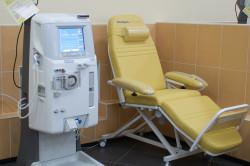 Experts say with confidence that a person can lead quite a quality life even after kidney failure. Symptomatic treatment is carried out to save a person’s life. It is based on the process of artificial blood purification. For more than a quarter of a century, artificial kidney (hemodialysis) devices have been operating in medical centers in our country. With their help, those who have lost their kidneys can live for about 5 years, as it was before the launch of the equipment, and several times longer. But if you do not resort to using artificial blood purification, a person dies in a few days. Accurate information on life expectancy statistics does not.
Experts say with confidence that a person can lead quite a quality life even after kidney failure. Symptomatic treatment is carried out to save a person’s life. It is based on the process of artificial blood purification. For more than a quarter of a century, artificial kidney (hemodialysis) devices have been operating in medical centers in our country. With their help, those who have lost their kidneys can live for about 5 years, as it was before the launch of the equipment, and several times longer. But if you do not resort to using artificial blood purification, a person dies in a few days. Accurate information on life expectancy statistics does not.
Approximate data are such that patients with renal replacement therapy live for more than 5 years, hemodialysis can prolong life by 23 years. The conservative method of recovery in case of kidney failure for the given period is impossible, but here there is a way out - a transplant that allows you to live well for more than 20 years.
About 40 people die a year without proper treatment.
It is expensive and time consuming. It is difficult to find a donor organ, sometimes it has to wait for years. Therefore, given the complexity of restoring health and prolonging life after kidney failure, it is necessary to take preventive measures and notice alarming symptoms in time.
Valery Kirillovich Nikitin
The information is relevant to me - I am now at 34 weeks gestation, the ultrasound doctor diagnosed the pyeloetasis of both fetuses, without giving any explanation. He said only.
Here I have the same problem. At work, solid drafts, and if you want to, you want to always stretch your ribs, then your neck, then your kidneys. And I also had cystitis. I treated him, but he is with.
Anna, the most important thing - do not worry. I also found a kidney prolapse, and when I was already in position. Yes, there was pyelonephritis, was on preservation, maintained a diet. Rodi.
Is it true that after laparoscopic surgery after a few days they are discharged from the hospital? In addition, I have high blood pressure, there are frequent crises, isn’t it?
The recipe is good, at the age of 50 kidney stones appeared, it is all rather difficult and long to heal, Father advised to drink a dog rose (the root is best), I recommended it.
More information
| Related articles: | |
|
Protein diet for weight loss - recipes for every day
A protein diet for a week is one of the most effective methods ... Pink lichen treatment at home
A spotted rash on the skin of the arms and legs, torso and face around ... How to take a mortgage in the savings bank
Sberbank of Russia may well be called a mortgage bank. Mortgage conditions in ... | |